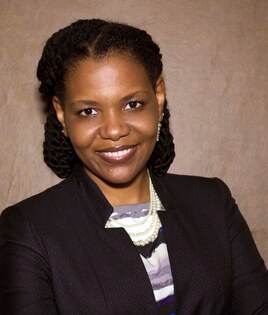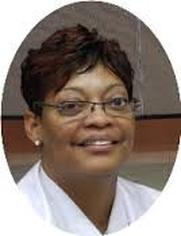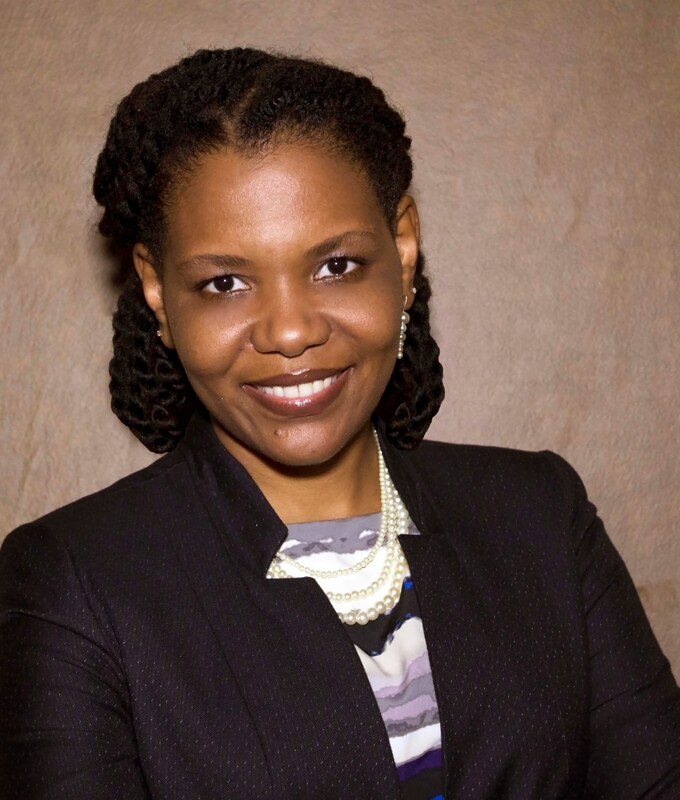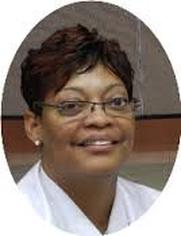FACULTY/FACULTY DEVELOPMENT
Scroll below to select research from the following scholars
 @DrJudiC
@DrJudiC
Dr. Judi Cinéas @DrJudiC
Title: Licensed Clinical Social Worker
Research Topic: A Study of Faculty Perceptions of the Use of Student Evaluations of Teaching in Faculty Assessments, Promotion, and Tenure Decisions
Institution: Lynn University
Committee Chair: Dr. John Cipolla
Abstract: The relationship between student evaluations of teaching (SET), grade inflation, and faculty assessments, promotion and tenure (FAPT) decisions is an issue that has received much attention in the past 30-40 years. The literature speculates that the use of SET ratings in FAPT decisions has resulted in faculty giving students higher grades to secure higher SET. This trend, it is held, has contributed to grade inflation, which decreases the reliability of assessing teaching effectiveness using student grades since they are not reflective of actual learning. It also decreases the validity of SET as an evaluation method if inflated grades are yielding higher SET ratings. This study explored the faculty perception of these uses of SET and its impact on grade distribution. The purpose of this study was to determine faculty perceptions regarding the uses of SET in FAPT decisions. The results of this study provide empirical information for administrators in higher education to evaluate the use of SET as an assessment method.
Click the link below to download this study.
Title: Licensed Clinical Social Worker
Research Topic: A Study of Faculty Perceptions of the Use of Student Evaluations of Teaching in Faculty Assessments, Promotion, and Tenure Decisions
Institution: Lynn University
Committee Chair: Dr. John Cipolla
Abstract: The relationship between student evaluations of teaching (SET), grade inflation, and faculty assessments, promotion and tenure (FAPT) decisions is an issue that has received much attention in the past 30-40 years. The literature speculates that the use of SET ratings in FAPT decisions has resulted in faculty giving students higher grades to secure higher SET. This trend, it is held, has contributed to grade inflation, which decreases the reliability of assessing teaching effectiveness using student grades since they are not reflective of actual learning. It also decreases the validity of SET as an evaluation method if inflated grades are yielding higher SET ratings. This study explored the faculty perception of these uses of SET and its impact on grade distribution. The purpose of this study was to determine faculty perceptions regarding the uses of SET in FAPT decisions. The results of this study provide empirical information for administrators in higher education to evaluate the use of SET as an assessment method.
Click the link below to download this study.
| a_study_of_faculty_perceptions_of_the_use_of_student_evaluations.pdf | |
| File Size: | 36183 kb |
| File Type: | |
 @Trish8827
@Trish8827
Dr. Tricia Delk
Title: K-12 Educator
Research Topic: The Efficacy of Multicultural Education Training In Teacher Credentialing Programs: A Descriptive Case Study
Institution: University of Phoenix
Committee Chair: Shawn Boone, Ed.D.
Abstract: The purpose of the qualitative descriptive embedded single case study research was to explore how multicultural curriculum and instruction in a teacher-credentialing program prepared pre-service teachers to work with diverse students. The problem was the inadequacy on the part of teacher-credentialing programs to train pre-service teachers to make cultural contact with their students may impede the pedagogy students receive. Data were generated from in-depth interviews with 19 pre-service teachers and curriculum analysis. A lack of cultural competence preparation within teacher-credentialing programs emerged through interviews with students. Analysis of the curriculum content showed that courses pre-service teachers must take are not providing enough opportunities for them to learn how to become culturally competent. Almost all participants stated that their perception of preparedness to meet the cultural needs of diverse students at the conclusion of their program was deficient. Four themes emerged: (1) The teacher-credentialing program should focus on bridging the gap between teachers and diverse students, (2) The teacher-credentialing program should focus on the importance of cultural integration, (3) The teacher-credentialing should revamp the components of their courses to include multicultural curriculum, and (4) The teacher-credentialing program should focus on developing an awareness of each student’s differences. Recommendations may provide an opportunity to improve teacher-credentialing programs to include multicultural education into every course to train pre-service teachers to become culturally competent and ready to create a culturally responsive classroom.
Click the link below to download this study.
Title: K-12 Educator
Research Topic: The Efficacy of Multicultural Education Training In Teacher Credentialing Programs: A Descriptive Case Study
Institution: University of Phoenix
Committee Chair: Shawn Boone, Ed.D.
Abstract: The purpose of the qualitative descriptive embedded single case study research was to explore how multicultural curriculum and instruction in a teacher-credentialing program prepared pre-service teachers to work with diverse students. The problem was the inadequacy on the part of teacher-credentialing programs to train pre-service teachers to make cultural contact with their students may impede the pedagogy students receive. Data were generated from in-depth interviews with 19 pre-service teachers and curriculum analysis. A lack of cultural competence preparation within teacher-credentialing programs emerged through interviews with students. Analysis of the curriculum content showed that courses pre-service teachers must take are not providing enough opportunities for them to learn how to become culturally competent. Almost all participants stated that their perception of preparedness to meet the cultural needs of diverse students at the conclusion of their program was deficient. Four themes emerged: (1) The teacher-credentialing program should focus on bridging the gap between teachers and diverse students, (2) The teacher-credentialing program should focus on the importance of cultural integration, (3) The teacher-credentialing should revamp the components of their courses to include multicultural curriculum, and (4) The teacher-credentialing program should focus on developing an awareness of each student’s differences. Recommendations may provide an opportunity to improve teacher-credentialing programs to include multicultural education into every course to train pre-service teachers to become culturally competent and ready to create a culturally responsive classroom.
Click the link below to download this study.
| delk_tricia_final.pdf | |
| File Size: | 1573 kb |
| File Type: | |

Dr. Annise L. Mabry
Title: Independent Consultant and Dean of Graduate Studies and Advisement
DeVry University/Keller School of Management
Research Topic: Fortressing Faculty: Improving Online Faculty Training Programs
Institution: Capella University
Committee Chair: Joshua Fischer Ph.D.
Abstract: A 2002 report from the National Center for Education Statistics reported that between 73-75% of undergraduate students today have one or more of the characteristics of a nontraditional student. While online courses provide access to higher education for underserved and underprepared students, the greater challenge is determining the intrinsic or extrinsic motivators for keeping these students in the classes (Belanger & Jordan 2000; Carr, 2000; Kearsley, 2000). Faculty selection and preparation to teach underprepared learners has become even more paramount as this student population increases. Faculty who teach courses with high numbers of underprepared learners need more than just the appropriate degrees and training; they also need personalities and core beliefs that will enable them to interact with their students appropriately and empathetically (Eney & Davidson, 2006). As online classes become more of the standard method for course delivery in higher education, underprepared educators present a problem for colleges and universities that are increasingly using online classes to serve these underprepared students. The purpose of this mixed methods study was to examine the relationship between online faculty training programs and the ability of instructors to assist at risk learners in benefiting from the university’s learning community.
Click the link below to download this study.
Title: Independent Consultant and Dean of Graduate Studies and Advisement
DeVry University/Keller School of Management
Research Topic: Fortressing Faculty: Improving Online Faculty Training Programs
Institution: Capella University
Committee Chair: Joshua Fischer Ph.D.
Abstract: A 2002 report from the National Center for Education Statistics reported that between 73-75% of undergraduate students today have one or more of the characteristics of a nontraditional student. While online courses provide access to higher education for underserved and underprepared students, the greater challenge is determining the intrinsic or extrinsic motivators for keeping these students in the classes (Belanger & Jordan 2000; Carr, 2000; Kearsley, 2000). Faculty selection and preparation to teach underprepared learners has become even more paramount as this student population increases. Faculty who teach courses with high numbers of underprepared learners need more than just the appropriate degrees and training; they also need personalities and core beliefs that will enable them to interact with their students appropriately and empathetically (Eney & Davidson, 2006). As online classes become more of the standard method for course delivery in higher education, underprepared educators present a problem for colleges and universities that are increasingly using online classes to serve these underprepared students. The purpose of this mixed methods study was to examine the relationship between online faculty training programs and the ability of instructors to assist at risk learners in benefiting from the university’s learning community.
Click the link below to download this study.
| annise_mabry_dissertation_final_copy_051307__1_.pdf | |
| File Size: | 739 kb |
| File Type: | |
 @DrMERobinson
@DrMERobinson
Dr. Mary E. Robinson
Title: Department Chair, Department of English and Reading, Montgomery College
Research Topic: An Examination of Faculty Development Practices At The American Community College
Institution: Morgan State University
Committee Chair: Rosemary Gillett-Karam, Ph.D.
Abstract: The purpose of this quantitative study was to examine faculty development practices at public community colleges. Using Gaff’s (1975) Alternative Conceptions of Instructional Improvement Model as a conceptual framework, a set of research questions were selected for the purpose of examining Gaff’s three dimensional construct of faculty development practices (faculty development, instructional development, and organizational development) at community colleges. The findings from this study suggest that a major concern for community college leaders and their faculty development coordinators will be in the identification of ways to effectively implement faculty development practices. This may lead to building a build a bridge between faculty interests (faculty development) and teaching and learning (instructional development). Community colleges will also need to adapt their practices to accommodate changing needs of accrediting agencies and other external policy makers (organizational development) while remaining focused on the learning needs of students.
One particular finding from this study was that faculty personal interests influenced faculty development practices at community colleges. Location (urban, rural, suburban, multi-location) was a variable that was critical in the following ways: (a) chief academic officers or vice presidents of instruction with less than three years of experience were in charge of faculty development at all locations; (b) faculty development practices varied at all locations; (c) faculty interests and concerns across all locations were the top program influences; (d) at no location was there a consensus about current faculty development practices; (e) at urban, rural, and suburban locations program assessment was identified as a major emergent direction; (f) location made a difference in primary purposes and challenges; (g) the direction of faculty development varied among all location; and (h) community college faculty development activities are offered a minimum of “twice a year” at all locations.
Click the link below to download this study.
Title: Department Chair, Department of English and Reading, Montgomery College
Research Topic: An Examination of Faculty Development Practices At The American Community College
Institution: Morgan State University
Committee Chair: Rosemary Gillett-Karam, Ph.D.
Abstract: The purpose of this quantitative study was to examine faculty development practices at public community colleges. Using Gaff’s (1975) Alternative Conceptions of Instructional Improvement Model as a conceptual framework, a set of research questions were selected for the purpose of examining Gaff’s three dimensional construct of faculty development practices (faculty development, instructional development, and organizational development) at community colleges. The findings from this study suggest that a major concern for community college leaders and their faculty development coordinators will be in the identification of ways to effectively implement faculty development practices. This may lead to building a build a bridge between faculty interests (faculty development) and teaching and learning (instructional development). Community colleges will also need to adapt their practices to accommodate changing needs of accrediting agencies and other external policy makers (organizational development) while remaining focused on the learning needs of students.
One particular finding from this study was that faculty personal interests influenced faculty development practices at community colleges. Location (urban, rural, suburban, multi-location) was a variable that was critical in the following ways: (a) chief academic officers or vice presidents of instruction with less than three years of experience were in charge of faculty development at all locations; (b) faculty development practices varied at all locations; (c) faculty interests and concerns across all locations were the top program influences; (d) at no location was there a consensus about current faculty development practices; (e) at urban, rural, and suburban locations program assessment was identified as a major emergent direction; (f) location made a difference in primary purposes and challenges; (g) the direction of faculty development varied among all location; and (h) community college faculty development activities are offered a minimum of “twice a year” at all locations.
Click the link below to download this study.
| mary.pdf | |
| File Size: | 3713 kb |
| File Type: | |



